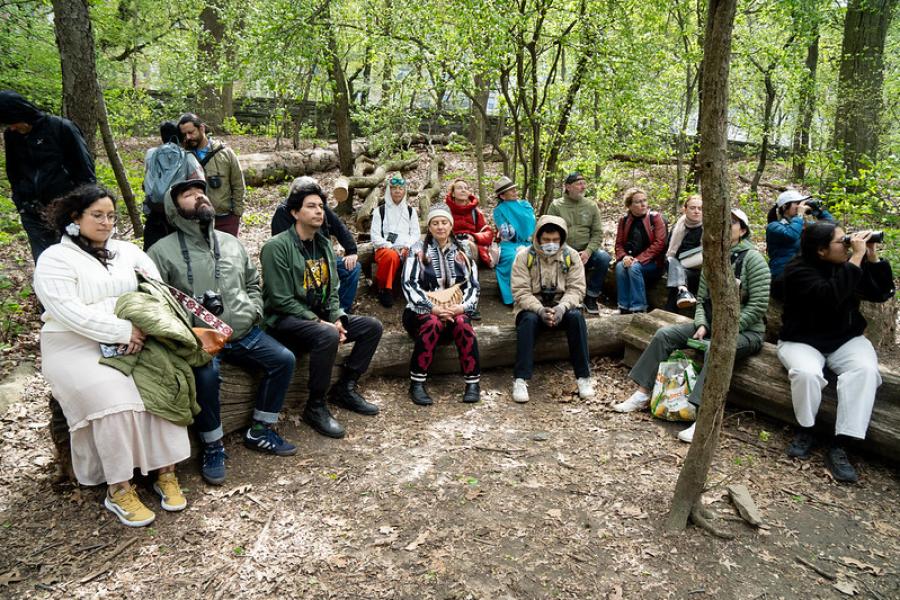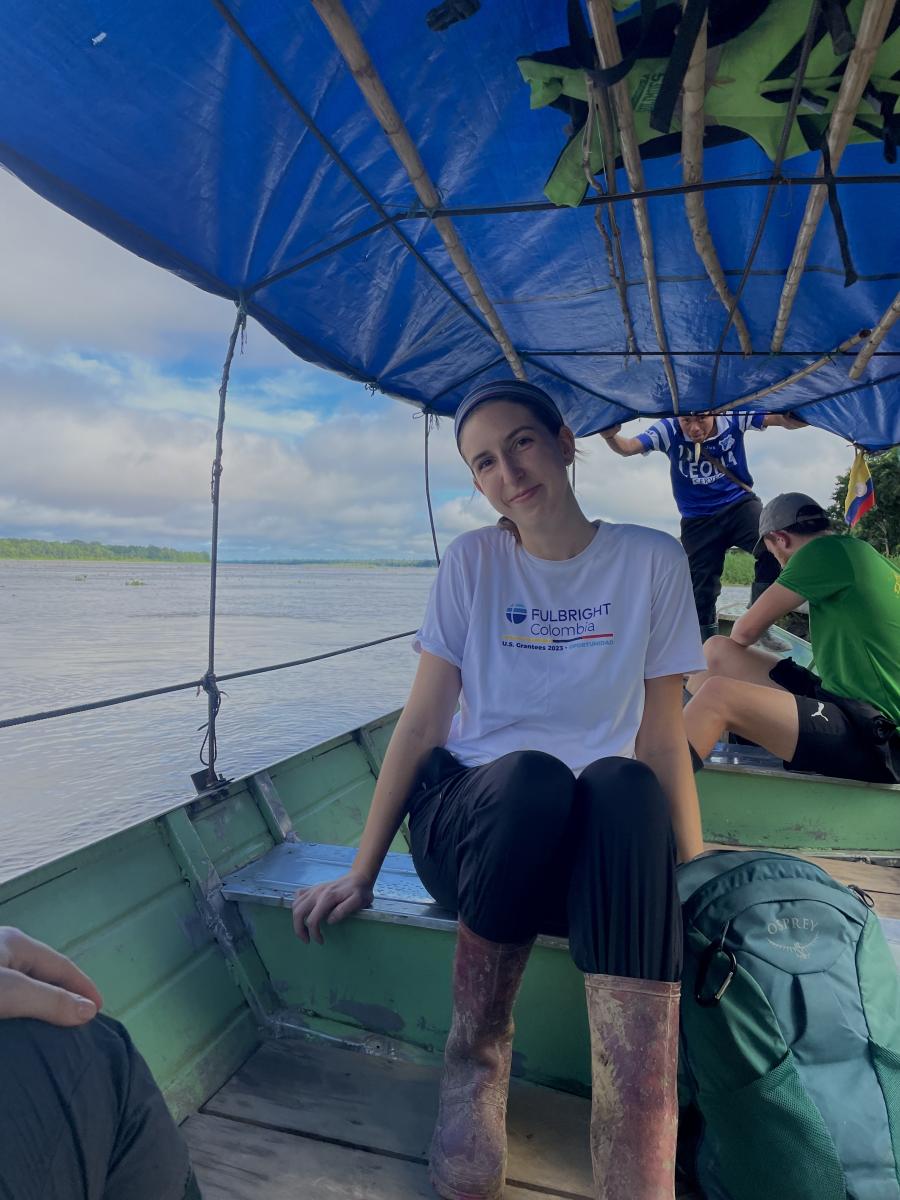SW Have you always sung?
JS Yes. Ever since I was a little girl, my dad always had me onstage. My family is very culturally oriented so we always gave presentations in schools. We constantly worked at trying to maintain our identity. My family always taught me to be proud that I was an Iroquois woman and the importance of what our culture had to offer us. I've always sung -- my native name is Tekaliwa khwa, which means "she sings." I was given that [name] as a little girl -- the elders know what they are doing. In the Iroquois way, singing -- listening and performing to music -- is a healing force, an integral part of our society. It is a real blessing to me to have been given the gift of music.
SW At what point did you learn the Oneida language?
JS My dad spoke the language fluently, [and] my more speaks it somewhat. I've always been able to eavesdrop. I don't speak it fluently [but] I'm trying to learn and doing what I can do in my music to help our children relearn some of the language because all other native languages have primarily been lost. We have a very small population [who] still speak the language. Some of the older people are now passing on. My grandfather spoke all six languages of the Iroquois. I'm doing what I can to preserve the language and the music. A good number of my albums [blend English and Oneida].
SW This morning I was listening to Heart of the World, a recording on which you perform with Mary Youngblood [Mary Youngblood plays the Native American flute, while Joanne provides the vocals]. Do you feel a specific connection in working with other Native artists that you don't feel you have when you're working with non Native artists?
JS No, I don't, not at all. There is an entire orchestrated production that I'm intending to do in the coming year with a German writer, Gerhard Rebmann -- very spiritual man, very wonderful friend and very talented musician. And we connect soul to soul. Wait until you hear it -- I'm so excited!
SW What do you think about the idea behind Lilith Fair -- that women have been marginalised by the music industry? Do you feel that as a woman and then as a Native woman you're doubly marginalised?
JS I don't keep that as a focus. I'm...from a matriarchal system. From a very young age you learn that it is the women who are [making the decisions in my culture]. It's not to say I haven't experienced maginilisation in my career. When I first started everyone said, "You're the next Buffy Saint Marie." There are only Native men out here performing.
SW Do you consider your music and collaborations forms of cultural survival? What do those words mean to you?
JS I believe cultural survival is extremely important. I also believe it's important to realize the contributions that we make for each other.
SW Your biography tells us that you're a member of the Wolf Clan, what does that mean in terms of your music?
JS In the Oneida Nation, there are three clans, the Wolf being very close-knit and very similar to wolves. [These beliefs are expressed in] all of my discussions about community. These things are very real to me. [They are a form] of living Cultural Survival. If you listen to some of the songs I've written, [you'll see that] I do howl a lot about a lot of issues. I'm in the forefront when someone asks me to [sing] at a major event. It's a very conscious sort of music, very healing I think. I was featured on Larry King one time about grave desecration in Kentucky. There were twelve hundred graves that were dug up in one farmer's field alone and everything [the ancients] were buried with was sold in a flea market. Someone called me and asked me to write a song about it. Everything has a place on this earth, and [everything has] a song.
Article copyright Cultural Survival, Inc.


